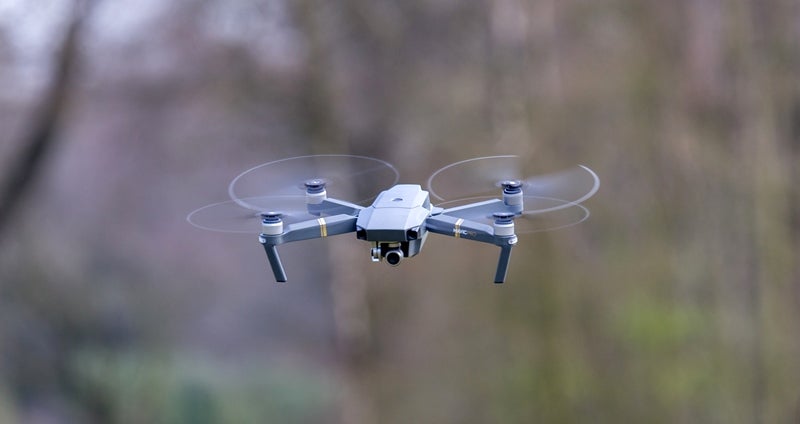
The UK Ministry of Defence (MoD) has funded 18 projects to foster the development of new technology to counter hostile drone threats.
The Defence and Security Accelerator (DASA) has awarded contracts to several companies to address the future threats of unmanned aerial systems (UAS).
Made available through competition, the nearly £2m of funding will help detect, disrupt and defeat hostile drones.
DASA conducted the competition on behalf of the Defence Science and Technology Laboratory (Dstl).
The winning projects include a proposal to develop ways to detect drones controlled by 4G and 5G technologies, electronic defeat or interceptor solutions, as well as use of artificial intelligence and machine learning to enable identification of drones.
BAE Systems, MBDA, Northrop Grumman, QinetiQ, and Thales are some of the major companies to have received the contracts.
Other firms and organisations include Airspeed Electronics, Animal Dynamics, Cubica Technology, PA Consulting, Plextek Services, Autonomous Devices, Northumbria University, RiskAware, and University College London.
Competition technical lead David Lugton said: “The introduction of unmanned air systems (UAS), often referred to as drones, has been one of the most significant technological advances of recent years and represents a shift in capability of potential adversaries.
“The threat from UAS has evolved rapidly and we are seeing the use of hostile improvised UAS threats in overseas theatres of operation. There is a similar problem in the UK with the malicious or accidental use of drones becoming a security challenge at events, affecting critical infrastructure and public establishments; including prisons and major UK airports.”
DASA received more than 90 bids for the competition, which was unveiled in April.
The focus is to acquire cost-effective sensing and defeat capabilities, and technologies to mitigate the threat of drones operating in swarms and in congested airspace.
Under Phase I of the Countering Drones competition, the companies will demonstrate proof of concepts of their proposals.
The first phase is expected to run until mid-2020. A collaboration day for the competition is to be held later this month in London, UK, to encourage industry and academia to make collaborative bids for Phase 2.



